Choosing the right foods for one’s kitchen can play a significant role in overall health and wellness. Often, the allure of quick, convenient meals or snacks may overshadow their detrimental health effects. In today’s era, where supermarkets are filled with an array of choices, it’s crucial to discern the nutritious options from those that can harm the body in the long run. This article sheds light on some of the foods that might not be the best choices to keep stocked in the kitchen.
Contents
Processed Meats
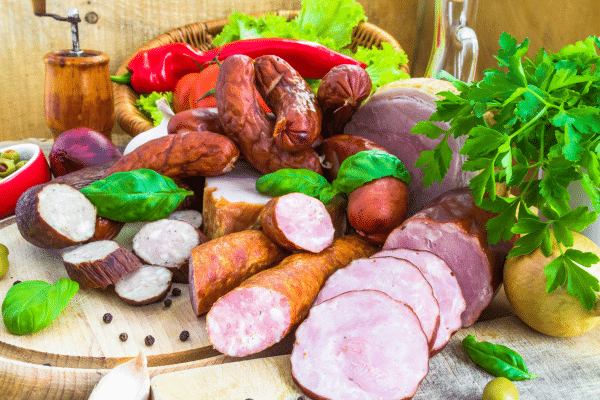
Processed meats like bacon, sausages, and deli slices may be flavorful and convenient, but their consumption comes with several health risks. They are often loaded with preservatives, artificial flavors, and high levels of sodium. Furthermore, studies have indicated a connection between frequent consumption of processed meats and a higher risk of diseases such as colorectal cancer and heart diseases. Alternatives like fresh, lean meats or plant-based proteins can be a better choice for those seeking both taste and health.
Opting for processed meats also means missing out on essential nutrients. While they might offer protein, they lack the diverse range of vitamins and minerals that come from whole foods. As a result, relying heavily on processed meats can lead to nutritional imbalances. When shopping, it’s essential to look for products with minimal additives and preservatives, or even better, to explore the plethora of whole food protein sources available.
Sugary Drinks and Sodas
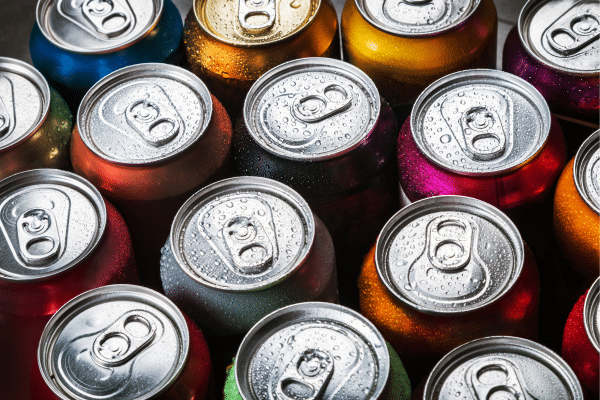
Sugary drinks and sodas are some of the biggest culprits when it comes to added sugars in the diet. Consuming these beverages regularly can lead to weight gain, increased risk of type 2 diabetes, and tooth decay. The high fructose content in many sugary drinks can overload the liver, leading to fat accumulation and, in severe cases, non-alcoholic fatty liver disease.
Replacing these beverages with healthier alternatives can make a significant difference in one’s health. Drinks like herbal teas, sparkling water with a splash of natural fruit juice, or simply plain water can quench thirst without the harmful sugars and additives. Remember, while these drinks may be marketed as refreshing and energizing, their long-term impact on health might be anything but refreshing.
White Bread
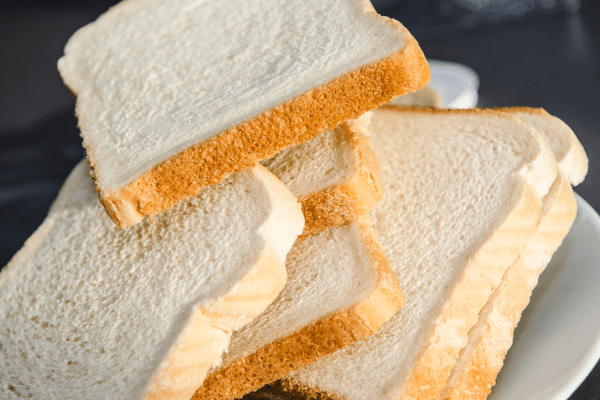
White bread, a staple in many households, is made from refined grains that have been stripped of their bran and germ. This refining process removes essential nutrients, including fiber, vitamins, and minerals. As a result, consuming white bread can lead to rapid spikes in blood sugar levels, which can be especially concerning for individuals with diabetes or insulin sensitivity.
On the other hand, whole-grain or multi-grain breads offer a more nutritionally dense alternative. They contain a higher fiber content, which aids in digestion and helps maintain steady blood sugar levels. When shopping for bread, it’s worth reading the labels carefully to ensure that whole grains are listed as the primary ingredient and not merely an afterthought.
Margarine and Trans Fats
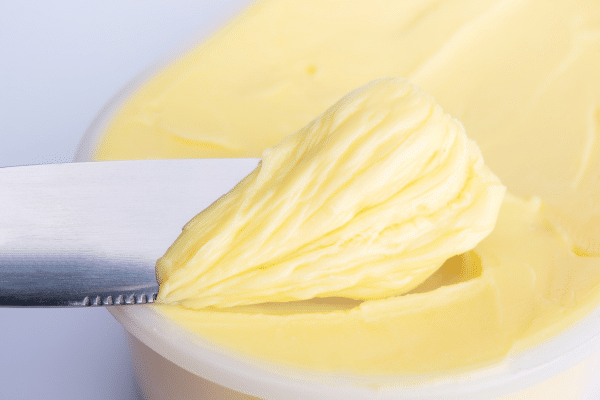
Margarine, once promoted as a healthier alternative to butter, is often loaded with trans fats. These artificially created fats are made by adding hydrogen to vegetable oils, giving margarine its spreadable consistency. However, consumption of trans fats has been linked to increased risks of heart disease, stroke, and type 2 diabetes. They elevate bad cholesterol levels (LDL) and decrease good cholesterol (HDL), contributing to arterial plaque buildup.
Healthier alternatives to margarine include olive oil, ghee, or grass-fed butter. When choosing a spread or cooking fat, it’s vital to check the ingredient list and nutrition label. Look for products free from hydrogenated or partially hydrogenated oils. The move towards natural fats can have profound benefits, from improved heart health to better nutrient absorption.
Artificial Sweeteners
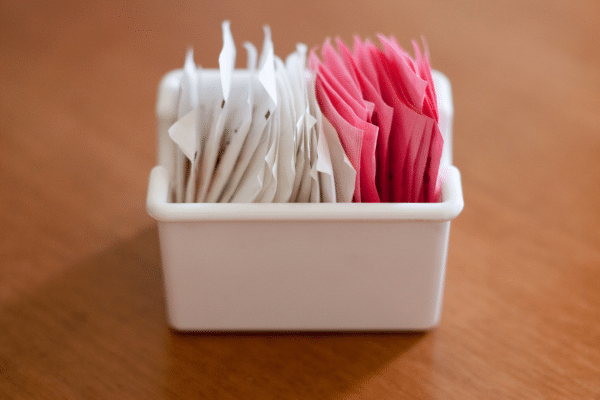
Artificial sweeteners, found in a myriad of products from diet sodas to sugar-free desserts, are often perceived as a guilt-free alternative to sugar. While they do cut calories, there’s a growing body of evidence suggesting potential metabolic issues tied to their consumption. Some studies have even indicated a paradoxical relationship between these sweeteners and weight gain, possibly due to changes in gut bacteria or increased sugar cravings.
When seeking a touch of sweetness, natural alternatives such as honey, maple syrup, or stevia can be employed. It’s essential to use them in moderation, as with any sweetening agent. Remember, just because something is labeled “sugar-free” or “diet” doesn’t necessarily mean it’s the healthier option. It’s always beneficial to be an informed consumer, understanding the potential implications of every ingredient.
Ready-to-Eat Snacks and Chips
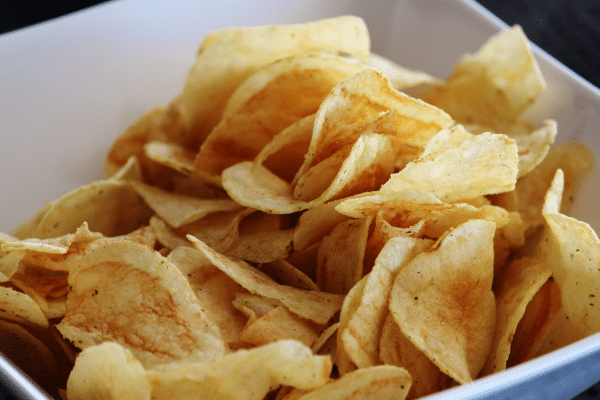
Supermarket aisles are flooded with bags of ready-to-eat snacks and chips, boasting flavors that tantalize the taste buds. However, these snacks often contain unhealthy fats, excessive sodium, and a slew of artificial additives. Moreover, they lack substantial nutritional value, offering empty calories that can contribute to weight gain and other health concerns.
For those seeking a crunchy snack, there are a plethora of healthier alternatives available. Options like air-popped popcorn, roasted chickpeas, or nuts can satisfy the craving without the harmful additives and excess salt. Moreover, these alternatives often come packed with additional nutrients and benefits. For instance, nuts are rich in heart-healthy fats and protein, making them a satiating and nutritious choice.
Frozen Meals
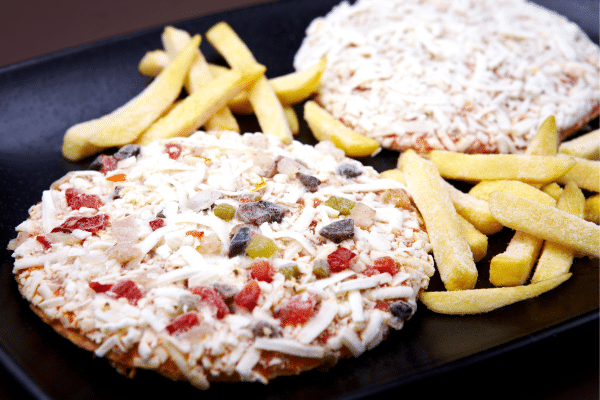
Frozen meals, while convenient for a quick dinner solution, often fall short in the nutrition department. Many are loaded with sodium, used both as a preservative and a flavor enhancer. High sodium consumption can lead to high blood pressure, a major risk factor for heart disease and stroke. Additionally, these meals can be high in unhealthy fats and lack the essential nutrients that fresh foods offer.
A better alternative for those pressed for time might be to prepare batches of homemade meals and freeze them. This approach offers the convenience of a quick meal while ensuring that the ingredients are wholesome. Another option is to look for frozen meals that are specifically labeled as low-sodium, organic, or all-natural, ensuring a healthier choice.
Instant Noodles and Pasta
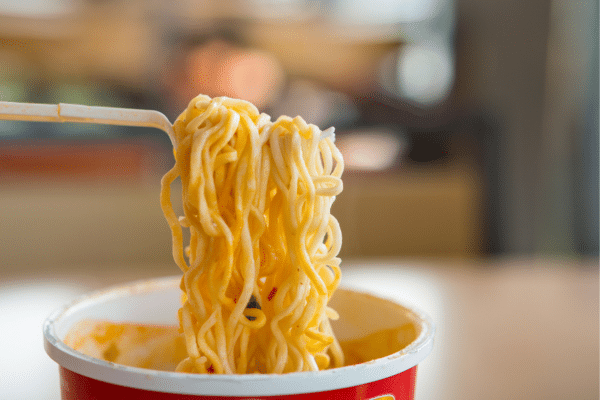
Instant noodles and pasta have become staples for many, especially students and busy professionals. These products, however, are typically processed and contain high levels of sodium, unhealthy fats, and artificial flavors. Furthermore, they often lack the vitamins and minerals found in whole grains, making them a less nutritious option.
Instead of reaching for instant varieties, consider whole grain pasta or noodles, which can be cooked in advance and stored for quick meals. Whole grains retain their natural nutrients, offering more fiber, vitamins, and minerals. Pair them with fresh vegetables and lean proteins to create a balanced, satisfying dish.
The Bottom Line
Navigating the aisles of grocery stores can sometimes feel like a challenge, with so many products claiming to be the best choice. It’s imperative to look beyond the marketing claims and understand the real impact of these foods on health. Prioritizing natural, minimally processed foods and being mindful of ingredient lists can make a profound difference in overall health and well-being. Making informed decisions today can pave the way for a healthier tomorrow.



